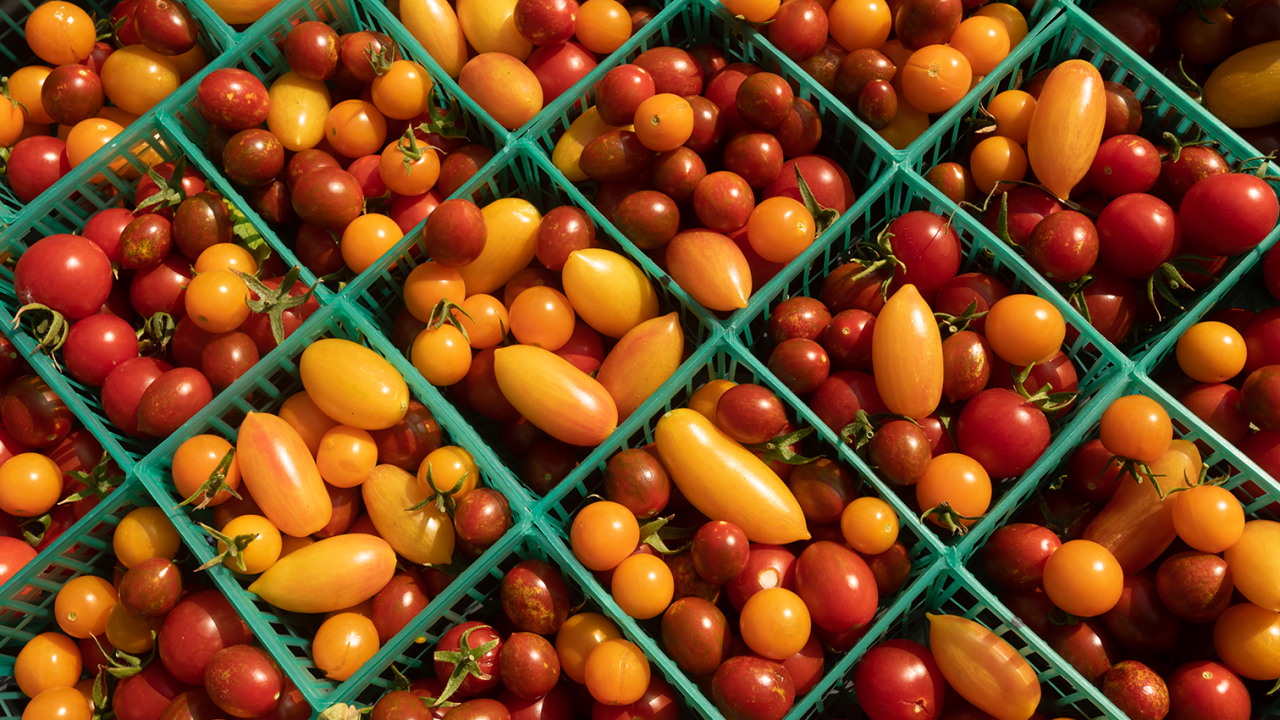
Mapping California’s Shift to Organic Farming
Research Project Explores Strategies for Expanding Organic Practices Statewide
Organic food is easy to find these days, from farmers markets to grocery stores. But organic farming covers only a small portion of California’s agricultural land. As the state pushes to make agriculture more climate-friendly, a new UC Davis-led research project is exploring why some regions are successfully shifting to sustainable practices – while others face more barriers to making the transition.
The California Organic, Agroecological and Regenerative (COAR) Transitions project brings together experts from across the University of California system to study the opportunities and challenges of shifting to organic and agroecological farming, an approach that improves soil health, supports biodiversity and reduces chemical inputs. Organic farming is considered a climate-resilient strategy because it boosts soil health, increases water retention and sequesters carbon, all of which help farms better withstand extreme weather events.
The California Air Resources Board aims for 20% of state cropland to transition to organic production by 2045 as part of the state’s broader plan to achieve carbon neutrality and reduce greenhouse gas emissions. Researchers from UC Davis, Berkeley, Merced, Riverside, Santa Cruz, and UC Agriculture and Natural Resources are identifying key farming regions in the state to better understand what factors have supported successful transitions to organic practices and what obstacles have slowed adoption in other areas.
Ryan Galt, professor and director of the Agricultural Sustainability Institute at UC Davis who is leading this project, said the team is also focused on ensuring that the shift to organic farming is inclusive, so small and historically underserved farmers aren’t left behind. Galt said it’s important to find out the best ways to help not just those who already have a lot of resources, but also helping those who don't.
“A lot of this project is about when we think about transitions, who's included in that, what are the different barriers that growers of different ethnicities, growers of different sizes are facing,” Galt said. “They're going to be quite different in some ways, but they also might be quite similar.”

Connecting land, food and people
The team is also exploring how sustainable, respectful ways of working with the land can support Indigenous communities and people who have historically been dispossessed of their land or had less access to it. Kase Wheatley, a Ph.D. candidate in geography, hopes to highlight practices such as salmon revitalization, cultural burns and agroforestry, which serve as climate adaptation strategies and support traditional land stewardship. Wheatley believes this project is an opportunity to rethink the bigger relationship between land, people and food.
“We see part of this project as trying to reflect on roles and responsibilities of the university and also how can we promote repair?” Wheatley said. “It's larger than just thinking about how we change cropping systems, but also how do we think about regional food systems and finding synergies between human well-being and ecological accountability.”
Through their research, the team will propose updates or changes to policies and programs that support long-term farming practices, guiding both the UC system and the state toward a more climate-conscious agricultural future.
“We know that resilience is going to matter a lot in the coming decades,” Galt said. “It’s about thinking about the future and thinking about how we design agriculture and food systems to be responsive to what we know is coming down the line, and that does mean more diversified and regionalized and localized types of production and consumption systems.”
This project is being funded in part by a 2025 Multicampus Research Programs and Initiatives grant award by the UC Office of the President.
Media Resources
- Ryan Galt, UC Davis Department of Human Ecology, regalt@ucdavis.edu
- Kase Wheatley, UC Davis Department of Human Ecology, kwwheatley@ucdavis.edu
- Tiffany Dobbyn, UC Davis College of Agricultural and Environmental Sciences, tadobbyn@ucdavis.edu